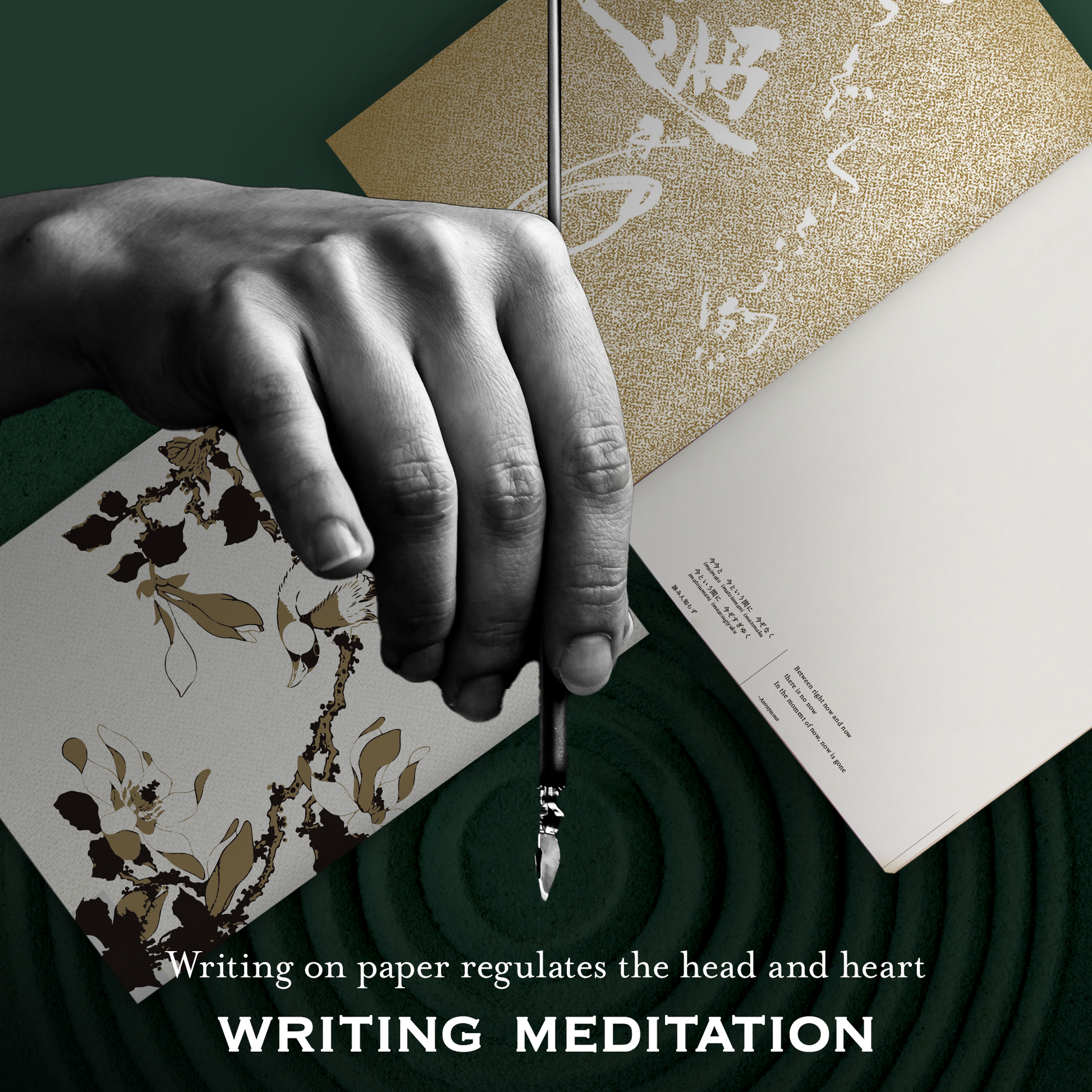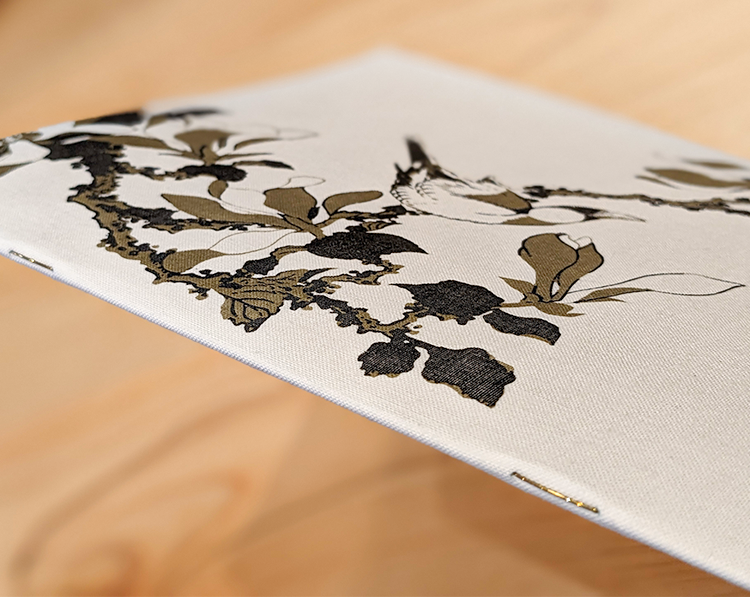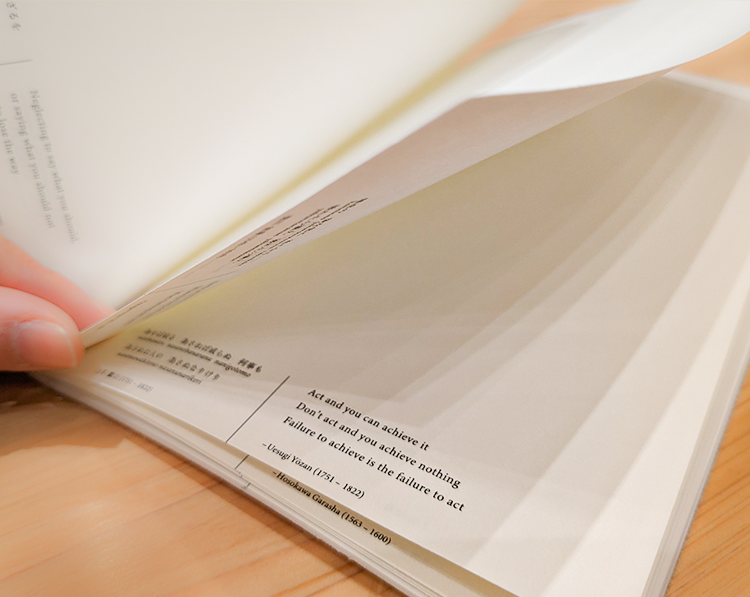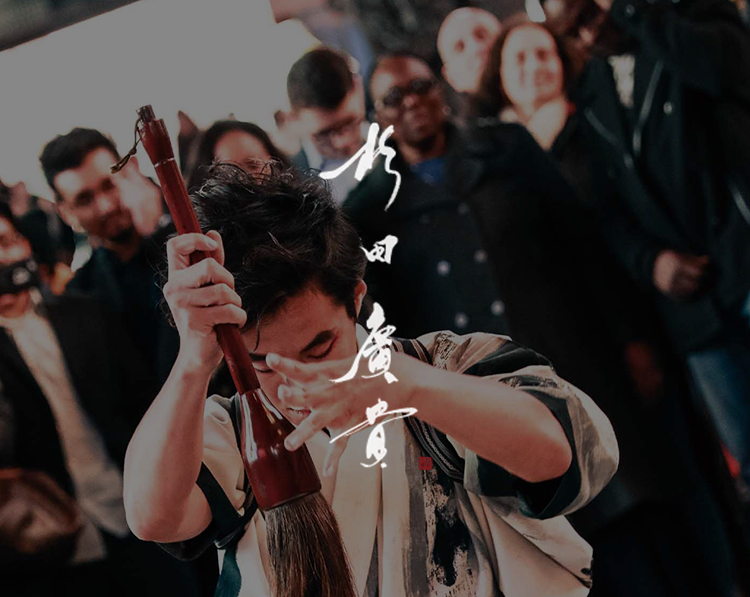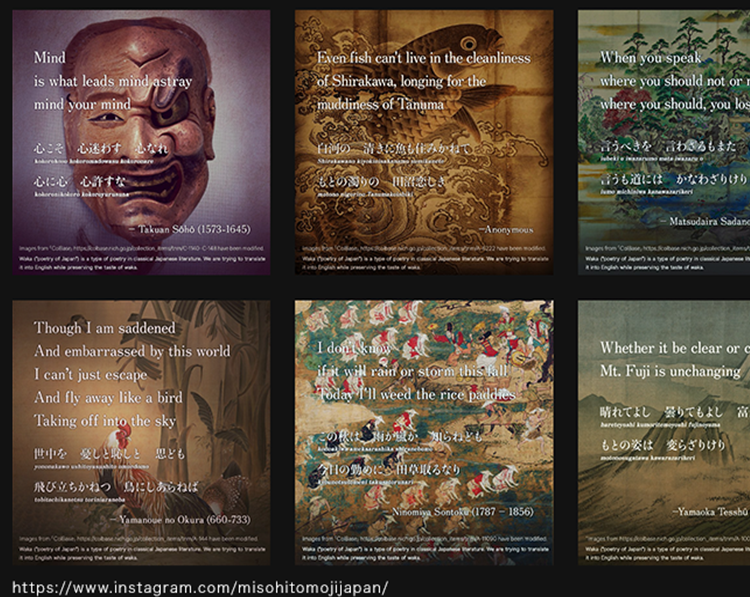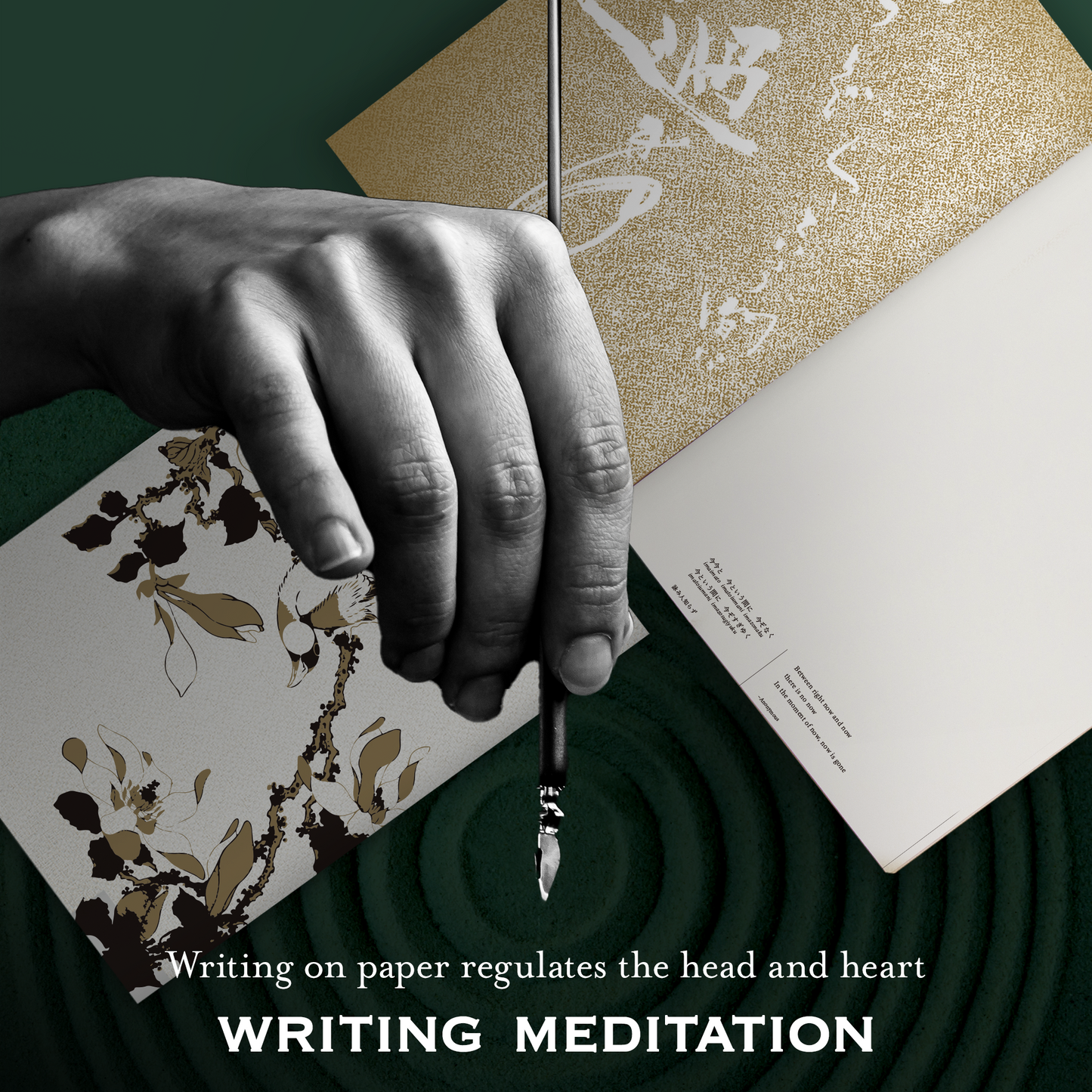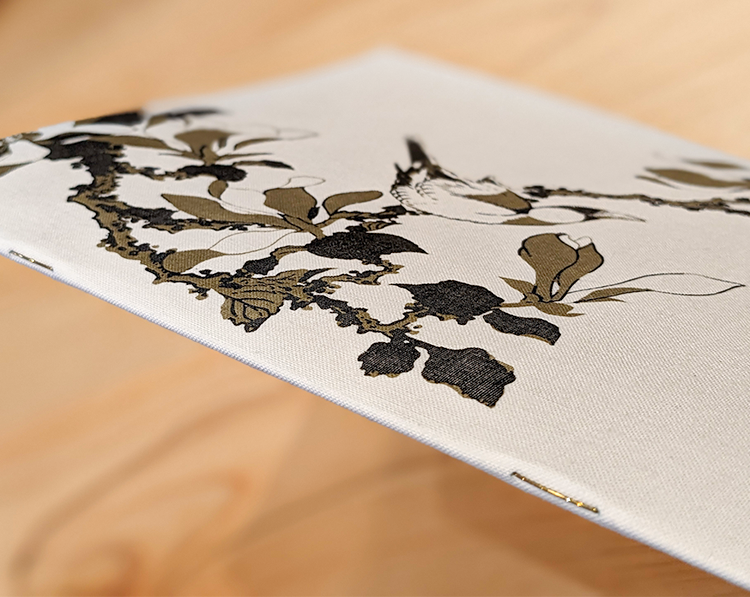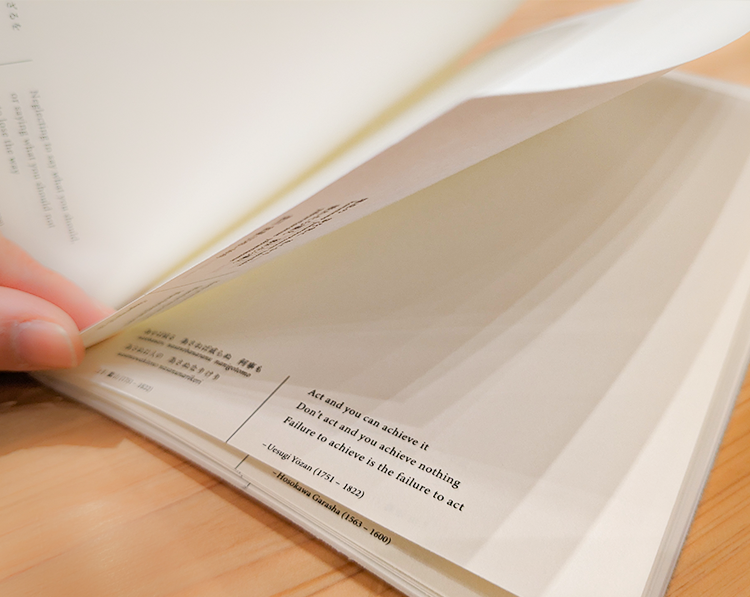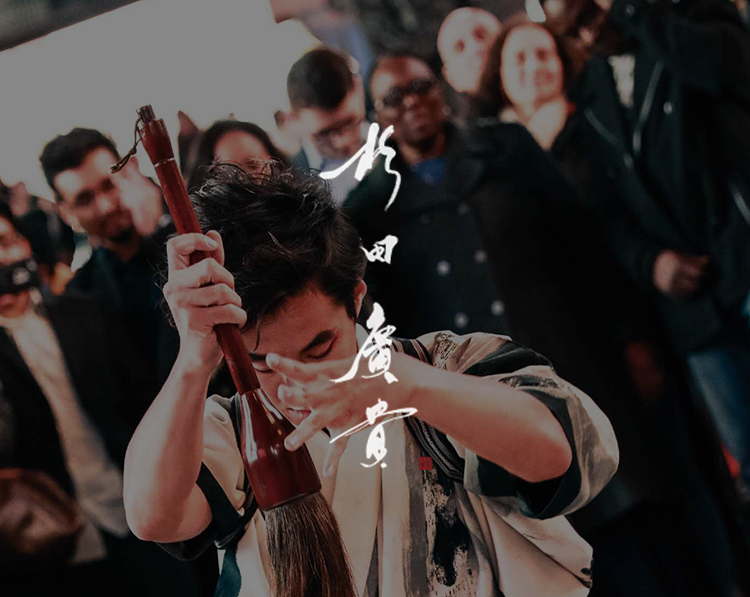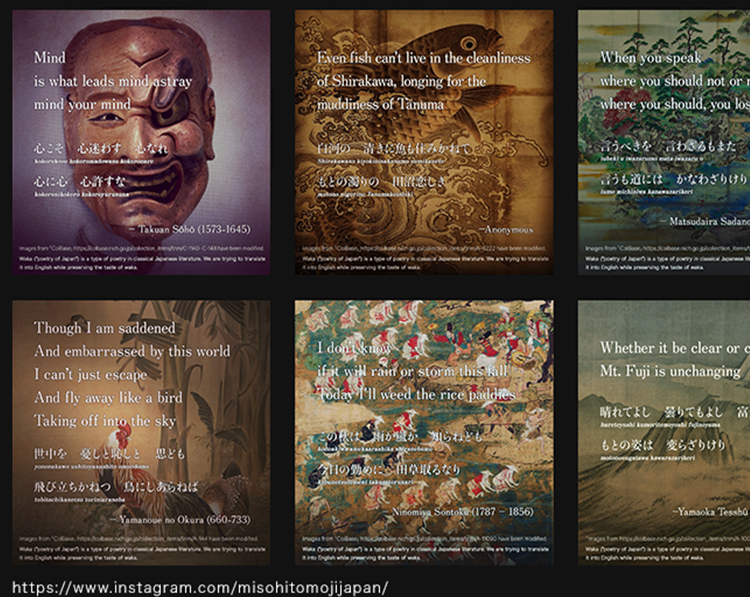Misohitomoji
Japanese Poetry Notebook
Japanese Poetry Notebook
Không thể tải khả năng nhận hàng tại cửa hàng
Japanese waka poetry beautifully preserves the wisdom of our ancestors.
Reading it can provide a vantage point from which to view your life.
Using fabric paper for the cover and letterpress printing, this notebook feel luxurious in the hand. The text uses ECO paper, which is smooth to write on. English translations are provided at the bottom of each page.
We have selected thirty-one poems from our MISOHITOMOJI Instagram collection to create something physical that you can hold in your hands and not just consume over the Internet. We felt that writing in a notebook would allow people to better engage with the poetry, hopefully inspiring you while at the same time giving you a daily boost.
Japanese Poetry Notebook Details
Specifications
Size:A5
Language:Japanese English
Text: 1 color, 32 sheets
Planning and design: MISOHITOMOJI
Printing and binding: Haguruma Co.Cover: 2-color (gold and black)/1-color (gold)
Cover design based on Katsushika Hokusai’s “Java Sparrow on Magnolia" from "ColBase" (https://colbase.nich.go.jp/collection_items/tnm/A-10569-669)
Calligraphy by Sugita Koki
Environmental Considerations
FSC® paper
FSC®︎ certified wood pulp is used as the raw material for the paper in this notebook. This is a sustainable production method utilizing properly managed forests. The 70% content of recyclable recovered paper pulp also contributes to the promotion of recycling.
No fluorescent dyes were used to emphasize the paper’s whiteness. Chlorine is not used in bleaching the pulp.
Printing
No organic solvents were used in the printing process.
Solvents used are constantly risk-assessed and verified for potential chemical risks.
Offset printing plates are used without developing completely non-processed plates, resulting in no chemicals being used and no waste liquids being produced.
Shipping and Shipping price
Notebooks will be shipped by Japan Post International e-Packet. Shipping costs are the same for orders from 0 to 0.5 kg (1 to 6 notebooks) and from 0.6 to 1 kg (7 to 12 notebooks).
For bulk orders over 1 kg, please contact us for shipping costs and discounts.
Notebooks shipped within Japan will be sent by Yu-mail (1-4 books) and Yu-mail 2-pack (5-8 books). 9 or more books will be shipped by Yu-pack.
For delivery status checks, safety, and inexpensive shipping methods, we may change shipping companies without prior notice. If additional costs are required, we will consult with you separately before shipping.
Shipping charges are automatically calculated at checkout and are subject to change due to fluctuations in the exchange rate between the Japanese yen and the U.S. dollar.
Due to the spread of the new coronavirus and other factors, there may be a suspension of acceptance or a delay in delivery depending on the destination country, region, or delivery method.
Delivery time
Shipment will be made within 72 hours of receiving an order.
For shipments outside Japan, please allow one week for delivery after shipment.
Example of shipping charges
Shipping to the U.S. (1-6 books) $18 / (7-12 books) $25
Shipping to Asia and Europe (1-6 books) $14 / (7-12 books) $20
Shipping to Japan (1-4 books) ¥310 / (5-8 books) ¥620 / (9 books and up) ¥1000
Introducing the Japanese poem "The Importance of the Present Moment"
On the inside cover of this notebook is a tanka poem about the value of living in the present moment, which is passing away between now and now. The same message as Goethe’s, that the best remedy to this is to live this present moment to the fullest, has been cited many times in Japan through waka poems. This message is repeated so often because we know its importance and the challenge of putting its wisdom into action. That is why we need to convey this teaching again and again.
-
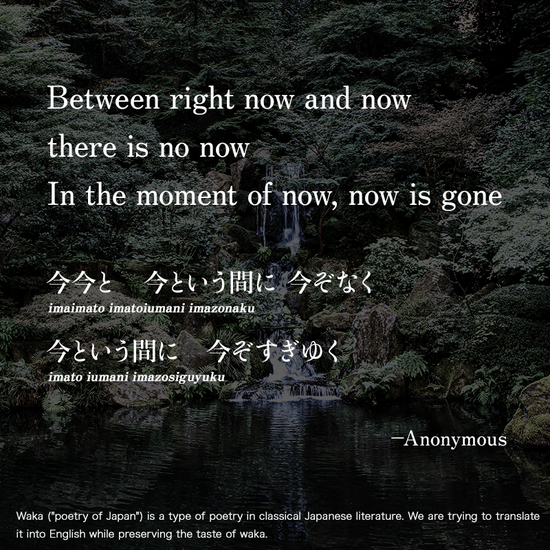
In our busy daily lives, we get caught up in small tasks and let days pass by without doing what we really want to do.
Is it because we are simply avoiding the hassle of doing what we want to do, or think we should be doing? Is it because we have become accustomed to living without being aware of the present moment?
However, if it is a hassle that cannot be avoided, do it now. If you really want to do something, do it "now" and not "some other time." Just as "now" is gone as soon as we think it, our lives, who we are, change each moment. There is no guarantee that the you of now and the you of the next moment will be the same. How can you be sure they will be? If you have something to be done, do it. If you have something you want to do, do it. -
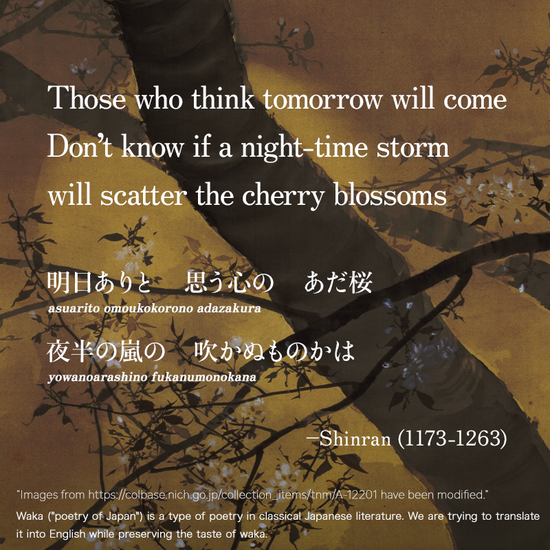
Waka often have repeat the same instructive themes, repeating to the point where I wonder if the reason the same themes appear again and again in these poems is because most people don’t do a good job of following their lessons. I can’t help but smile when I think of my own failures, and I feel a sense of camaraderie with my predecessors.
-
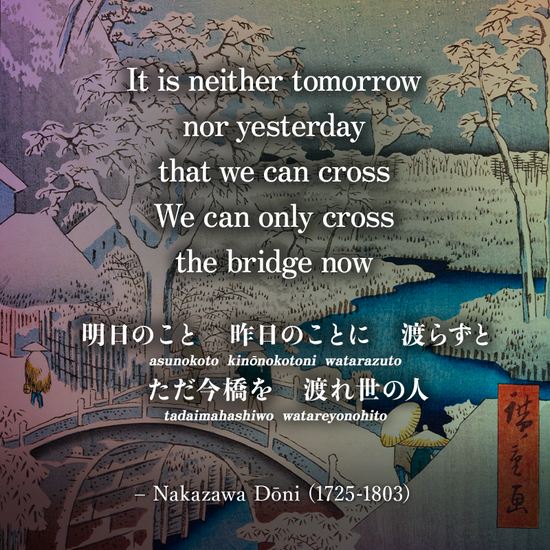
We have to cross the bridges in front of us at this moment, without putting it off for tomorrow or regretting what we should have done yesterday. Now is not the time to be anxious about an uncertain tomorrow, nor to have unfounded expectations, nor to dwell on a yesterday that will never return. The future lies beyond the accumulation of the present. If we keep reaching tomorrow without doing anything today, eventually we’re going to be too old to make the full use of our time that we could be making of it today.

